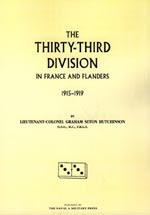
Harry Patch's death yesterday, marked not only the passing of Britain's oldest man, but also the passing of trench warfare from living memory to history. I never met Harry, but I met many of his WW1 contemporaries (my paternal grandfather and his brother amongst those) and I still feel very privileged to have done so. In fact it was my grandfather's death in 1980 that inspired me, at the age of 18, to go out and conduct interviews with the 1914-1918 generation; men I had never met before. I am now finally publishing those interviews on another blog - World War 1 Veterans.
But I remember, even as a young boy, playing in the farmer's fields close to where I lived, and jumping down into the ditches, pretending that they were trenches. And much later, when I sat down with my note book and my tape recorder and listened to the stories of the men who were really there, I was making up for the hours I never spent talking to my own grandfather about his time with the Royal Garrison Artillery. Later still, it was always with sadness that the news filtered down to me that another man I had met and spent pleasant hours with, had died suddenly, or passed away in hospital after a short illness. I attended some of their funerals and I remember taking a long solitary walk through the country lanes around Great Dunmow, Essex in January 1986 after the news came through that another 'favourite' of mine, Reginald Crane, had died suddenly in hospital, just after we all thought he'd recovered from the illness that had put him there in the first place.
Of course I knew that my time with these men was always going to be short-lived, but I enjoyed their company during the time that I had with them, and it was evident that many of them enjoyed my company too. Reg Crane (4th Berks) was a regular lunchtime drinking partner of mine at The Ship and The Compasses in Broomfield Road, Chelmsford and his old pals Bob Bailey (RAMC) and Daniel O'Sullivan (RFA) would also come along on occasions. Stan Brown (1st Leicesters & 2nd South Staffs) lived just around the corner in Tudor Avenue and every once in a while I'd drive over to Writtle and take Harry Bardsley (18th Manchesters) out to lunch at The Duck Inn at Newney Green. Wilf Wortley (5th Leicesters) in Loughborough gave me his Princess Mary tin which he'd kept in his garden shed for years, filled with old screws and nails. Bertie Murkin of the 1/5th Essex gave me books, and Freddie Cutts (Army Cyclist Corps) gave me a lot of his WW1 ephemera. Alone in an Abbeyfield House and with no living relatives, he was pleased to pass them on to somebody who was interested in the Great War.
But all the men I met, without fail, showed me a courtesy and a kindness that I often felt was lacking in my own generation and in British society as a whole. So when they died, it was both the men and what they stood for; the values they represented, that I mourned.
And so going back to Harry Patch, I do feel a sense of loss; the passing of that generation of men who found themselves either willingly (or later forcibly) uprooted from their familiar Edwardian Society and thrust into what many of the men I spoke to, simply described as "Hell". Harry never spoke about World War One until he was a hundred. Most of the men I interviewed had rarely spoken of the war either and I did meet a number of veterans who simply refused point blank to talk about it. Reg Crane fell into that category. All he would say about the Great War was, "We were glad to forget it."
I see on the BBC News that a National Service to commemorate the generation of 1914-1918 is to take place in Britain, probably at Westminster Abbey. It is fitting that this should be the case; a last opportunity for all of us to thank that blighted generation for the sacrifices they made.
The image on this post comes from the Government of Australia website and shows construction of the Menin Gate at Ypres, well under way. The names of 54,896 men who have no known grave are carved onto the gate's massive panels.








No comments:
Post a Comment